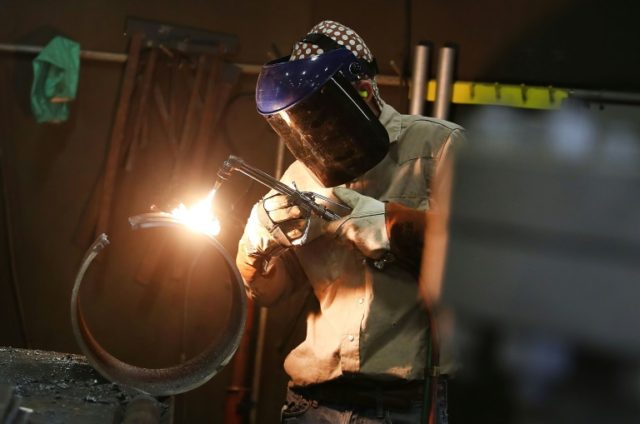Despite media reports that President Donald Trump wants to bail out U.S. oil and natural gas companies after the coronavirus shook the international energy market, representatives from the industry said that’s not something they seek.
CNBC called members of energy trade associations who met with White House staff on Wednesday to talk about how the coronavirus is affecting the market after oil prices dropped 24 percent on Monday and four percent “lobbyists.”
While the coronavirus is affecting all markets, the oil price plunge took place after negotiations between the Organization of the Petroleum Exporting Countries (OPEC) and Russia fell apart and the de facto OPEC head, Saudi Arabia, responded by slashing oil prices and said it would increase production.
CNBC then reported that the oil industry isn’t seeking a bailout, according to the American Petroleum Institute, the largest trade association representing the oil and natural gas industry:
Still, the American Petroleum Institute, which represents companies including Halliburton, Hess and Occidental Petroleum, is not seeking federal aid, said the the spokeswoman, Bethany Aronhalt. That statement comes despite reports Tuesday indicating President Donald Trump was considering a federal aid package for the shale industry, potentially in the form of low-interest loans. An official told CNBC that the White House doesn’t want the potential assistance to be perceived as a bailout.
API CEO Mike Sommers told Bloomberg on Tuesday the group’s focus is on balancing the oil market.
“What we have here is a demand shock, of course, because of coronavirus, and a supply shock, because of the decision by Russia and the Saudis to flood the market with oil,” Sommers said. He went on:
So, we are concerned about these geopolitical factors that are feeding into some downturn within the industry … right now, we trying to make sure policymakers are responding in the right way. But, ultimately, the solution here is to work in a diplomatic way to make sure oil markets are well-balanced.
We’re focused on making sure the free-market works, not on some government intervention that would be outside the market.
The Department of Energy suspended the sale of crude oil from the Strategic Petroleum Reserve, which would have put more oil into the market, a move Sommers supports.
“We want to make sure the government continues to make these kinds of decisions that are good for the oil industry,” Sommers said.
Reuters reported that Russia wants to work with OPEC under certain conditions, according to Pavel Sorokin, Russia’s deputy energy minister:
Sorokin said Russia was open to talking to OPEC again if the situation arises and was not engaging in a price war.
Russia’s oil producers, [which] price their crude in dollars on world markets, would be sheltered by the dollar-rouble exchange rate.
“We are not in a price war with anyone,” Sorokin said. “We are competitive. We watch the market and understand that such a situation will help the market to recover. High-cost projects will disappear.”
Follow Penny Starr on Twitter

COMMENTS
Please let us know if you're having issues with commenting.